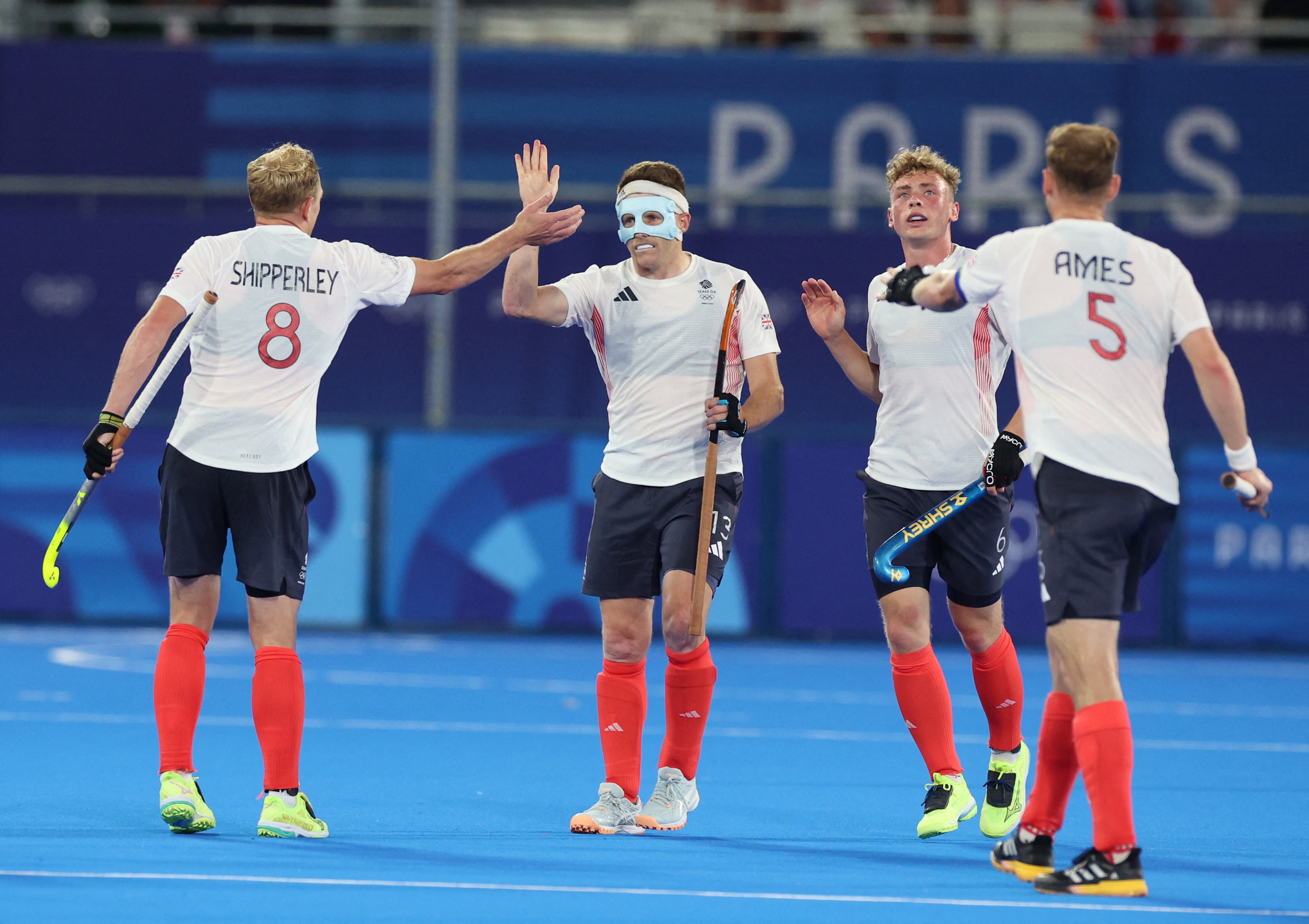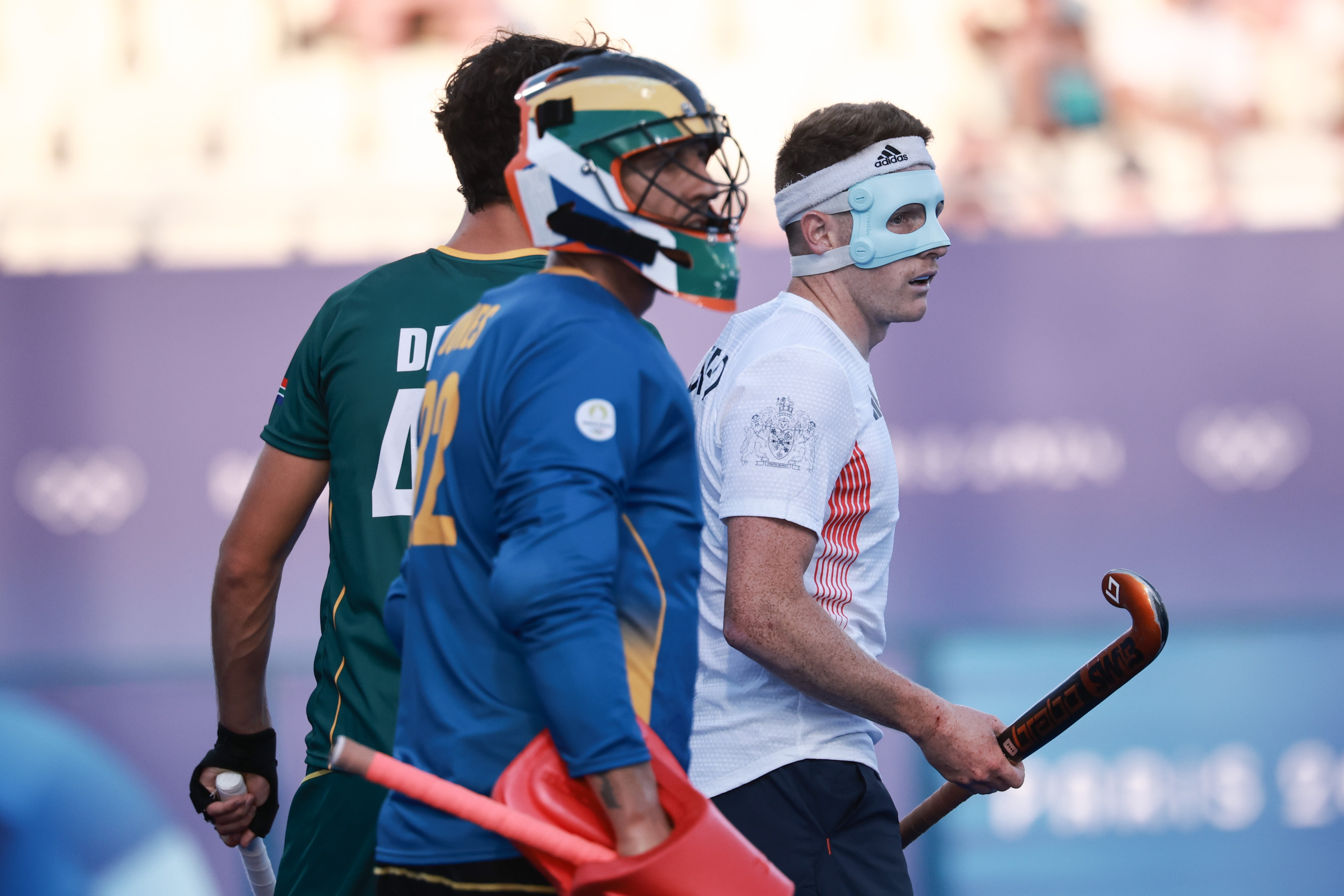Why is Team GB hockey player Sam Ward wearing a mask at the Paris Olympics?
Striker suffered horrific head injury in qualifying for Tokyo Olympics that left him blind in one eye and could easily have ended his career

Your support helps us to tell the story
From reproductive rights to climate change to Big Tech, The Independent is on the ground when the story is developing. Whether it's investigating the financials of Elon Musk's pro-Trump PAC or producing our latest documentary, 'The A Word', which shines a light on the American women fighting for reproductive rights, we know how important it is to parse out the facts from the messaging.
At such a critical moment in US history, we need reporters on the ground. Your donation allows us to keep sending journalists to speak to both sides of the story.
The Independent is trusted by Americans across the entire political spectrum. And unlike many other quality news outlets, we choose not to lock Americans out of our reporting and analysis with paywalls. We believe quality journalism should be available to everyone, paid for by those who can afford it.
Your support makes all the difference.Team GB’s men’s hockey team have made it through to the quarter finals of the Olymics at Paris 2024, where they face India on Sunday for a place in the last four.
They have come from behind in successive matches to make it this far, with two shots at a medal to come if they beat India.
One of those earlier games saw Sam Ward set up a late leveller against South Africa in a 2-2 draw.
Spectators previously unfamiliar with the sport might be wondering why Ward plays wearing a mask to protect his face.
He has done so ever since suffering an utterly horrific accident during qualifying for the Tokyo Games, when he was struck in the head by a teammate’s shot on goal during GB’s match with Malaysia on 3 November 2019.
The incident happened around 20 minutes from the final whistle, with Ward’s sides comfortably in front and was caused - at least in part, by the player’s own admission - by his being caught out of position “in absolute no man’s land”.
Hockey balls can travel as fast as 100 miles per hour and Ward was caught in the side of the head just above his left eye by the wayward snapshot, the resulting injury leaving him with seven or eight fractures to his face and a torn retina, resulting in the permanent loss of central vision from his left eye.
“I remember dropping to the floor, I remember getting into hospital and I remember looking and there was just this dent and loads of swelling down the side of my face. And then also a lack of bone structure here,” Ward recalled recently, pointing to his left temple, in an interview with the National Lottery to promote its fundraising efforts in support of British athletics.
“It was a whirlwind of emotions. The boys had obviously just qualified for Tokyo. So they were absolutely buzzing… I got taken through for an X-ray and I was coming back out and I was shouting to them: ‘Is there a hole in my head?’”
Going into grisly detail about the surgery he underwent, which required four plates and 31 screws to repair his skull, Ward explains: “There’s no real nice way of saying this, but they have a few different routes to repair such an injury, basically, and unfortunately mine resulted in an insertion from here [pointing to the base of his left ear] over to here [the centre of the right side of his skull] where they basically peel back your face and basically put plates and screws in it.”

Now aged 33, playing for Surrey’s Old Georgians at club level, also speaks movingly in the interview about his difficult recovery period, including the moment he returned to hospital 10 days after being operated on to discover his partial loss of vision would be permanent.
“Finding out you’ve lost central vision in your left eye for life was probably the toughest time, and I remember walking out of there, ringing my dad and just crying my eyes out,” he says.
His subsequent recuperation included “dark and tough times, mentally it was pretty brutal” but he worked with a sports psychologist who helped him manage his emotional response to the trauma.
“Because we didn’t know what was going to be achievable… every little baby step was amazing,” he says. “And as long as we, through the whole process, could see that we didn’t expect to be here at the next step, it kind of kept you very level-headed and grounded.”
For Sam Ward, being part of Team GB’s squad for Japan was already a major personal victory, but now that his side have progressed beyond the group stages at Paris too, he will be hoping his remarkable story does not end there and that this time there is a medal for him at the end of the journey.
A version of this story was originally published in 2021.
Join our commenting forum
Join thought-provoking conversations, follow other Independent readers and see their replies
0Comments